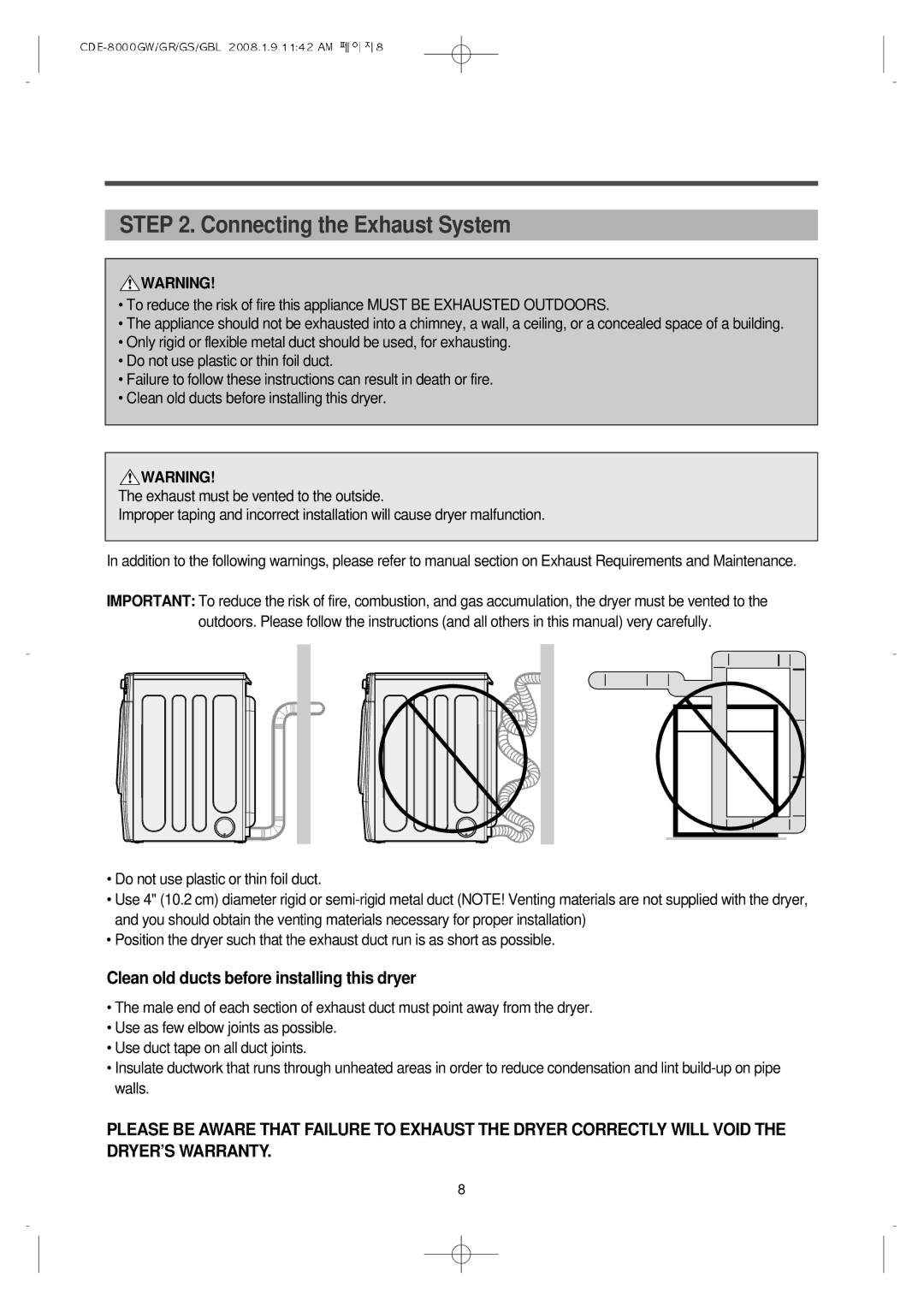
STEP 2. Connecting the Exhaust System
![]() WARNING!
WARNING!
•To reduce the risk of fire this appliance MUST BE EXHAUSTED OUTDOORS.
•The appliance should not be exhausted into a chimney, a wall, a ceiling, or a concealed space of a building.
•Only rigid or flexible metal duct should be used, for exhausting.
•Do not use plastic or thin foil duct.
•Failure to follow these instructions can result in death or fire.
•Clean old ducts before installing this dryer.
![]() WARNING!
WARNING!
The exhaust must be vented to the outside.
Improper taping and incorrect installation will cause dryer malfunction.
In addition to the following warnings, please refer to manual section on Exhaust Requirements and Maintenance.
IMPORTANT: To reduce the risk of fire, combustion, and gas accumulation, the dryer must be vented to the outdoors. Please follow the instructions (and all others in this manual) very carefully.
•Do not use plastic or thin foil duct.
•Use 4" (10.2 cm) diameter rigid or
•Position the dryer such that the exhaust duct run is as short as possible.
Clean old ducts before installing this dryer
•The male end of each section of exhaust duct must point away from the dryer.
•Use as few elbow joints as possible.
•Use duct tape on all duct joints.
•Insulate ductwork that runs through unheated areas in order to reduce condensation and lint
PLEASE BE AWARE THAT FAILURE TO EXHAUST THE DRYER CORRECTLY WILL VOID THE DRYER’S WARRANTY.
8
